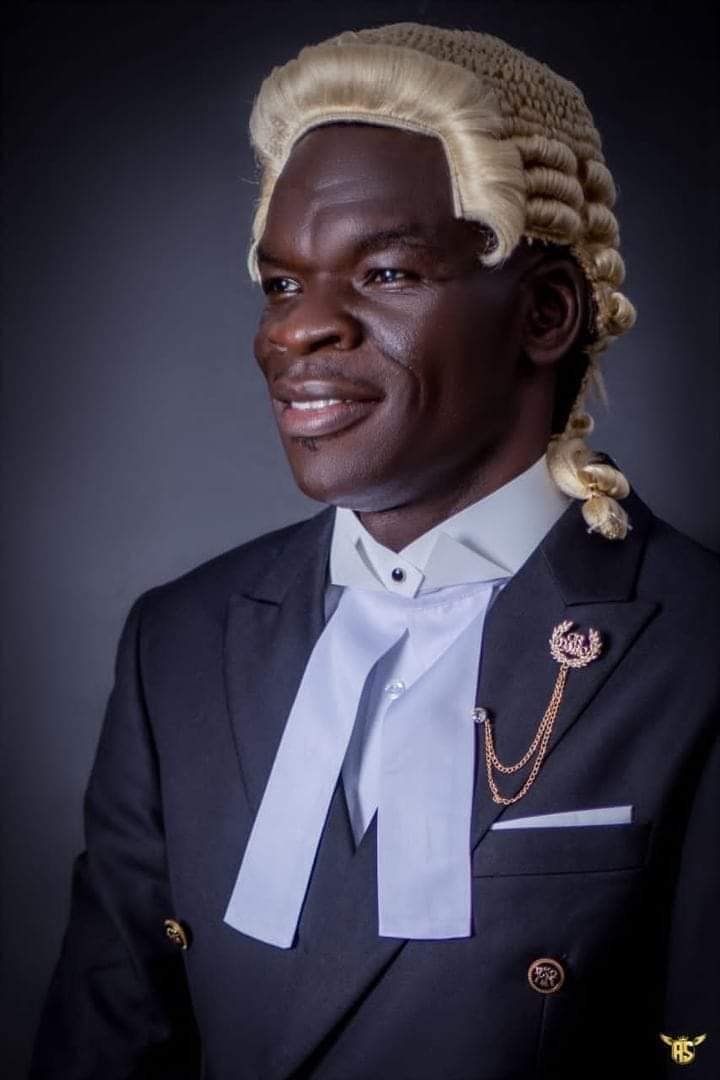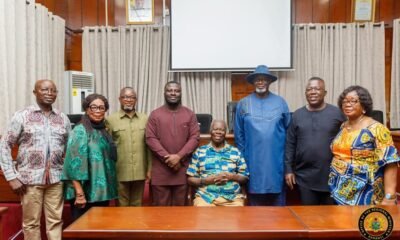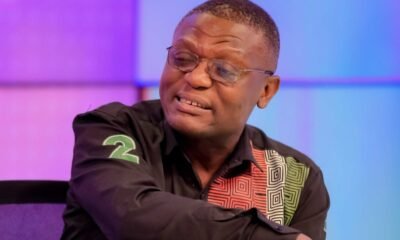Profile
Ms Edith Awuah — teacher earning living as cabbie

Though Ms Edith Awuah, a trained teacher was able to achieve her childhood dream of becoming a teacher, little did she know that her cherished profession would be short lived. This compelled her to seek an alternative means of livelihood.
The impeccable way teachers dressed, conducted themselves, and earned the respect from members of the communities where they served, attracted her to this noble profession.
Initially, her hope was to retire as a teacher and enjoy the fruits of her labour. Unfortunately, she had the shock of her life when she returned from China, where she had studied Chinese Language on study leave to discover that her employers had terminated her employment.
She disclosed that the papers for study leave which she had filled and submitted, were not given to the authorities for endorsement.
In times of unexpected challenges in life, it takes a person with perseverance, courage and determination to calm the storms of life and take things easy.
Having known her fate, she made several attempts to enable her to be reinstated, but this could not materialise.
Ms Awuah did not throw in the towel easily as she wrote application letters to private schools to be employed, but she was turned down in all the schools she had applied to.
Initially, she attempted selling African wear but this did not attract patronage as she had anticipated, and was compelled to abandon that venture.
When she conceived another idea of converting, her private car into taxi, she feared that the plan might not be successful.
As fortune would have it, a friend later disclosed to her that he had spent too much on fuel, therefore, he had decided to convert his car into a taxi.
This piece of information brought back the idea she had conceived to convert her private car into taxi, and ever since, she has not regretted the bold decision she took.
After she had acquired the necessary papers to work as a taxi driver at the Atomic Junction Taxi Drivers Union, it was not easy getting the permission to operate with the union.
Ms Awuah said it was initially not easy, but with persuasion, the executives gave her the green light to operate.
The following day, she reported to work at 6.00am and that has been her normal time to commence work.
Operation
Ms Awuah admitted that it was not easy in the commencement of her driving career, but with determination and the spirit of hard work, she was able to withstand the difficulties.
“My colleague drivers did not hesitate to give me the needed support and encouragement. Any time l struggled to enter the main road, they gave me free passage” she said, and indicated that other drivers gave her thumbs- up whenever they identified her.
Details
She said whenever the drivers returned to the station, they were required to register their car numbers to determine when they would load again.
“The job needs patience and tolerance since one will deal with different passengers. You can meet a distressed passenger from home, so you should know how to handle people. Some will hurl insults at you if you do not have change to give them instantly.”
Encouragement
” You will never lack money when you take to driving. Looking at the current population of the country, it will be impossible for the government to provide jobs for each person,” she said.
She has encouraged the youth and the unemployed graduates not to run away from driving as though it was a profession reserved for school drop-outs or for a particular group of people, but rather embrace whatever they could do to earn a decent living.
Ms Awuah said graduates who had made up their minds to work only in the office, were making a serious mistake, since they could do better when they tried their hands on other jobs.
According to her, since people had made it in the informal sector, they should be rest assured that they would also make it, provided they were focused on the job of their choice and asked them to put whatever they had learnt into practice.
She said her siblings were confident that she would succeed. She also disclosed that the cashiers at the banks marveled at the frequency with which she visited the bank to deposit money from the sales she had made.
The former teacher said, if offered the opportunity to return to the classroom and teach, she would turn down the offer.
Ms Awuah’s next target is to build a shop at her house and settle to trade when she becomes tired of driving her taxi.
Training
Ms Awuah attended Peki Training College in the Volta Region and later enrolled at the University of Education, Winneba. She taught at Bator Junior High School (JHS), Denu JHS, Kotobabi Primary School, and finally at the Association International School before she went for further studies in China.
Hobby
She is the seventh of eight siblings and a chorister who sings soprano. She likes banku with okro stew and boiled yam with palava sauce.
Profile
Prisca Abah: Ghana’s modelling powerhouse

Ghanaian model, philanthropist and advocate, Prisca Abah, who is known for her contributions to the fashion industry, is strutting her stuff on higher levels.
She was recently selected as one of the models for the Big8 Girls Project, an initiative by Clinton Samuel to celebrate influential African models.
The project consisted of three episodes: the Bio Shoot which highlighted Abah’s professionalism through a corporate-themed photoshoot; Afrodeity which focused on showcasing her confidence and artistry, celebrating the African divine feminine and royalty which presented Abah as a symbol of African cultural pride, embodying strength and elegance.

The Big8 concept, produced by Clinton Samuel, intentionally highlights and celebrates the strongest and most influential models on the African continent, congratulating their steadfastness and contributions to the African fashion industry, even as they grind and win in other aspects of life.
The Big8 sets hierarchy and high standards in the African fashion and modelling industry, crowning eight of them with the ‘Top Model’ status as the leading female models in Ghana at the moment.
“Working with these fiery women will surely ignite more creative minds and stir the pot of positive competition,” said Clinton.

Abah’s early life and career
Prisca Abah began her modelling career in 2013, achieving her first notable milestone in 2014 with an editorial shoot for 5-Star International Modelling Agency. In 2015, she made her runway debut at the Ghana Fashion Awards.
From 2016 to 2018, Abah participated in major African fashion events such as Glitz Africa Fashion Week, Mercedes-Benz Fashion Week in Johannesburg, and Rhythms on the Runway.
During this period, she received accolades, including the “Best Female Model of the Year” and spoke as a UN Ambassador for Sustainable Development Goal 12 at the Sustainable Rice Platform Conference.
International recognition and pageantry
In 2022, Abah expanded her reach by entering the pageantry world. She placed as the first runner- up at the Beauty of Africa International Pageant and represented Ghana at the Miss Globe World Finals, where she earned the title of Miss Globe Africa 2022.

Philanthropy
Abah founded the Palins Foundation, a non-profit organisation, aimed at empowering women and youth through initiatives in education, skills training, and personal development.
Awards and collaborations
In 2023, Abah received the Best Model of the Year award at the Time Ghana Arts and Entertainment Awards. She has collaborated with leading designers such as Charlotte Prive and Ejiro Amos Tafiri, further solidifying her influence in African fashion.
Legacy
Prisca Abah is recognised not only for her contributions to the fashion industry but also for her philanthropic efforts. Her journey serves as an inspiration to young Africans, encouraging them to pursue their dreams while giving back to society.
By Edem Mensah Tsortorme
Profile
Juventus Duorinaah, Ghana’s first deaf Lawyer

In a landmark moment for Ghana’s legal landscape, Juventus Duorinaah Esq., has etched his name in history as the country’s first lawyer with a hearing impairment.
His journey from a humble background to breaking barriers in the legal profession serves as a powerful inspiration for countless individuals in the disability community, proving that determination and resilience can defy societal expectations and create pathways to success.
For Juventus, the recognition as Ghana’s first deaf lawyer feels surreal.
“It feels like a dream,” he reflects, acknowledging the stereotypes surrounding deafness and the humble background from which he hails.
Juventus’ passion for law sparked in 2008 while seeking admission to the University of Ghana (UG). Although he initially faced challenges due to the nature of the application process, the help of his older brother and his determined spirit led him to pursue a Bachelor of Arts degree in 2012, followed by a Master of Laws at Cardiff University in 2014.
His passion for the study of law became highly intense when he had to study alongside qualified lawyers from several jurisdictions, even though he did not have a legal background. Here, he faced the unique challenge of studying without sign language interpreters, relying instead on a palantypist to transcribe lectures.
Juventus’ role model was his professor and mentor, Professor Luke Clement, who profoundly inspired him in shaping his understanding of law and human rights.
He remembers Prof. Thomas Stephens from the University of Ghana School Of Law, who inspired him with his way of dressing, in-depth knowledge of the law and engagement with students.
He recounts the enormous challenges he encountered during the COVID-19 pandemic in 2020, when lectures moved online, and Dr Stephen’s tremendous support to ensure things moved quickly and smoothly for him.
“I also had the chance to have a few classes with the Dean himself, Prof. Raymond Atuguba. He taught the course such that some of us never felt scared as other lecturers made the course,’ he recalled.
Juventu’s academic journey was fraught with challenges, particularly in communication.
The year 2007 was the last time he studied with deaf peers. He was often the only deaf person in his classes throughout the following years of his education, which made interaction with peers difficult.
Despite these hurdles, he remained high-spirited, studying late into the night and seeking help from kind classmates when necessary.
Reflecting on his academic experience at UG, he connected his affection for the university to his older brother, who is also an alumnus. He felt inspired to be a student of the premier university, saying he would choose the University of Ghana any time, any day, if given the chance to further his studies or work.
The University Of Ghana School Of Law, along with its Dean, Professor Raymond Atuguba, the Director of Legal Education of the Ghana School of Law, Yaw Bramiah Oppong, and his capable team, including the Registrar and Deputy Registrar of the Ghana School of Law and the Office for Students with Special Needs (UG), made significant contributions to his journey.
Prof. Atuguba acknowledged Juventus’ achievement as evidence of the university’s commitment to Diversity, Equity and Inclusion.
Commenting on how the school accommodated his special needs, Prof. Atugugba explained that ‘In the case of Juventus, we worked closely with him to understand and address his special needs, ensuring he had access to the teaching and learning resources in the appropriate formats that would support his academic journey.
Professor Atuguba noted that Juventus’s journey is just beginning, and the future holds promise for him and the many lives he aims to touch along the way.
Juventus’s close friend, Ida Esi McOwusu Esq., described her first encounter with Juventus as ‘intriguing.’ “My first meeting with Juventus was in class, where he sat right in front of me in first year,” Ida reveals. She was intrigued and wanted to find out more about him, especially how Juventus navigated his way to this level. “I got closer and we became friends from there,” she remarked.
Mr Francis Kweku Essel, Juventus’ interpreter, shed light on the primary challenges he faced in carrying out his job, particularly the complex nature of legal terminology and concepts. This validates Ida’s comment on the interpreters’ lack of legal background as a challenge Lawyer Duorinaah encountred.
Juventus dreams of becoming a judge and aims to enhance justice delivery while serving as a role model for young people with disabilities.
He is currently mentoring a group of young deaf students interested in pursuing law, hoping to pave the way for future generations. What’s next for Lawyer Juventus? His next step is to complete his pupilage, after which he can decide further his legal career.







